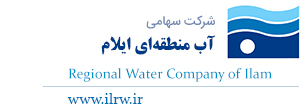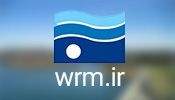PRESSURE MANAGEMENT IN URBAN WATER NETWORKS FOR WATER SCARCITY CONDITIONS
With respect to population growth, increase of water consumption per capita and high cost of drinking water production and regarding limited water resources, optimum usage of existing water is considered as a vital issue especially in developing countries. Therefore managers and decision makers in water and wastewater sectors should consider this important issue in their plans. Pressure management is one of the most effective and practical methods for water saving in urban water distribution networks. In spite of many studies which describe the principles of pressure management theory, however, only few studies on pressure management at field are available. In this paper, effect of pressure management on reduction of water demand and consumers` consumption was studied. To perform the study, a small urban water distribution network was isolated. A modulated pressure reducing valve (PRV) with an ultrasonic flowmeter used to control and monitor the flow parameters. Some different pressure patterns were generated by the modulated PRV applied on the network and for each case total water inflow to the network and water consumptions of the consumers were measured. Results showed that a good pressure management could significantly decrease the water demand and consumption.
گروه: شبکه های انتقال و توزیع









